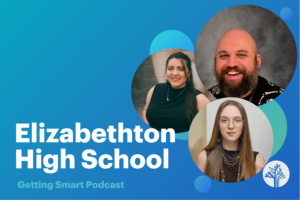Mastery Tracking: Measuring Specific Skills to Accelerate Student Learning

In response to Megan Mead’s From Formative Assessment to Tracking Student Mastery.
Evolving educational technology is allowing educators to accelerate student learning growth by tying instructional resources and strategies more directly to student learning needs.
In a recent post on GettingSmart.com, Megan Mead thoughtfully articulates many of the advantages that using assessment for mastery tracking can offer to educators as they seek to deliver more effective instruction. Key advantages include the ability to provide more engaging and personalized learning opportunities, to increase students’ ownership of their learning and to make better-informed instructional decisions.
The ability to track student progress toward mastery depends in large part on having consistent, valid assessment items to measure specific skill development. Most assessments measure student performance at the standards level; although such assessments can be helpful, they do not show teachers where students are in their acquisition of important skills. Emerging tools that measure student proficiency at a more granular level show educators exactly which competencies students have already mastered, areas in which students are progressing and where they need additional support.
Furthermore, mastery tracking can help students themselves understand their progress in a learning journey model. As Mead notes, this kind of transparency can help to engage students by tapping into the intrinsic motivation that accompanies goal setting and goal achievement.
In order to move students from understanding to increased achievement and growth, teachers need to identify and utilize the instructional resources and strategies best suited to individual student needs. Recently, Northwest Evaluation Association (NWEA) released a tool designed to address both parts of this equation. Skills Navigator allows for on-demand, personalized assessment of skill acquisition and connects teachers directly to a library of curated, high-quality instructional resources aligned to specific student learning needs.
When done right, innovation in educational technology allows those who know best—teachers— to help every student succeed and create teaching and learning environments that support both mastery and continuous growth.
For more from Jean, check out:

Jean Fleming, Senior Director Communications & PR at Northwest Evaluation Association. Follow NWEA on Twitter at @NWEA.






0 Comments
Leave a Comment
Your email address will not be published. All fields are required.